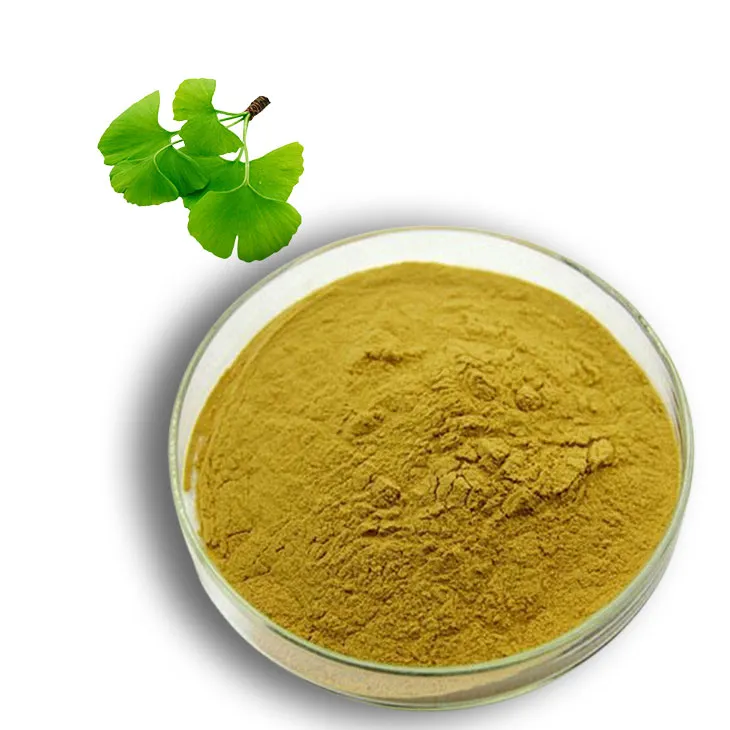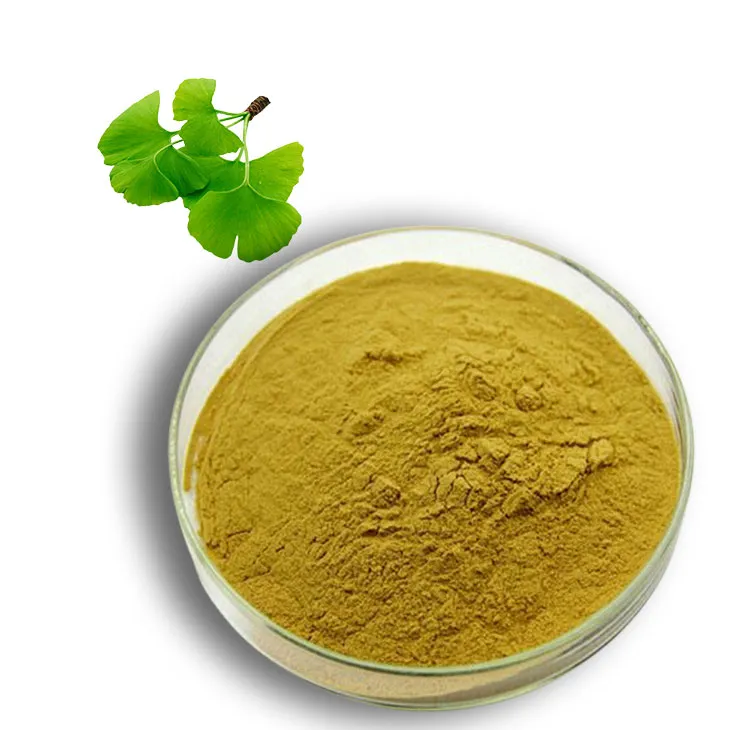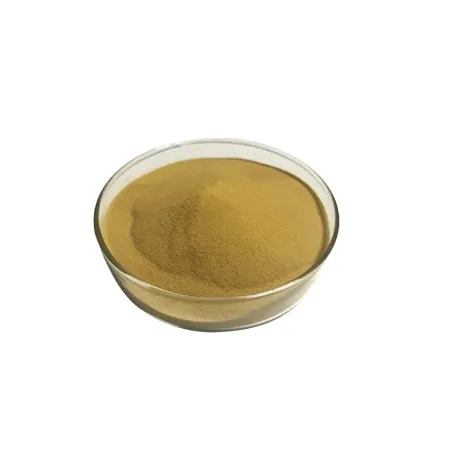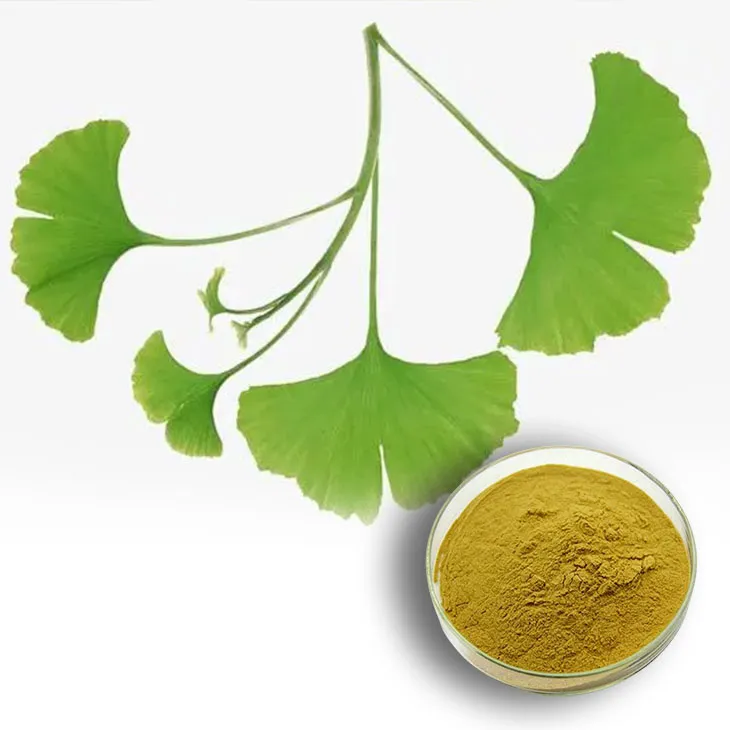- 0086-571-85302990
- sales@greenskybio.com
Benefits of Ginkgo biloba extract in cattle feed.
2024-11-12

1. Introduction
In the field of animal husbandry, the search for natural additives to improve the health and productivity of livestock is an ongoing pursuit. Ginkgo biloba extract has emerged as a potential candidate for inclusion in cattle feed. Ginkgo biloba is a well - known plant with a long history of use in traditional medicine. The extract of its leaves contains a variety of bioactive compounds that can confer multiple benefits on cattle when added to their feed.

2. Antioxidant Capacity Enhancement
Oxidative stress is a common problem in cattle, which can lead to cell damage and various health issues. Ginkgo biloba extract has been shown to enhance the antioxidant capacity of cattle.
2.1. Bioactive Compounds and Antioxidant Action
The extract is rich in flavonoids and terpenoids. These compounds act as antioxidants by scavenging free radicals. Free radicals are highly reactive molecules that can damage cells, proteins, and DNA. By neutralizing these free radicals, the flavonoids and terpenoids in Ginkgo biloba extract protect the cells of cattle from oxidative damage. For example, flavonoids such as Quercetin and kaempferol can donate electrons to free radicals, thereby stabilizing them and preventing them from causing harm.
2.2. Impact on Overall Health
This enhanced antioxidant capacity has a positive impact on the overall health of cattle. It can reduce the risk of diseases associated with oxidative stress, such as certain inflammatory conditions. Cattle with better antioxidant protection are more likely to maintain normal physiological functions, which is crucial for their growth, reproduction, and milk production.

3. Immune Function Improvement
Another important benefit of Ginkgo biloba extract in cattle feed is its potential to improve the immune function of cows.
3.1. Modulation of the Immune System
The bioactive compounds in the extract can modulate the immune system of cattle. They can enhance the activity of immune cells such as macrophages and lymphocytes. Macrophages are responsible for engulfing and destroying foreign pathogens, while lymphocytes play a key role in recognizing and responding to specific antigens. By increasing the activity of these cells, Ginkgo biloba extract enables cows to better defend themselves against diseases.
3.2. Disease Resistance
Cattle with improved immune function are more resistant to a wide range of diseases. This includes both bacterial and viral infections. For instance, they may be less likely to contract mastitis, a common and costly bacterial infection in dairy cows. Additionally, they may be better able to fend off respiratory infections, which can be a significant problem in cattle, especially in crowded or poorly ventilated environments.

4. Improvement in Digestion and Nutrient Absorption
Ginkgo biloba extract also has potential effects on improving digestion and nutrient absorption in cattle, which is highly beneficial for their growth and milk production.
4.1. Effects on the Digestive Tract
In the digestive tract, the extract may influence the activity of gut microbiota. A healthy gut microbiota is essential for proper digestion. Ginkgo biloba extract can promote the growth of beneficial bacteria while inhibiting the growth of harmful ones. This can lead to better breakdown of feed components and improved nutrient availability. For example, it may enhance the fermentation of dietary fiber in the rumen, releasing more energy - rich metabolites for the cattle to utilize.
4.2. Nutrient Absorption Enhancement
By improving the digestive process, Ginkgo biloba extract also enhances nutrient absorption. Cattle are able to absorb more essential nutrients such as proteins, vitamins, and minerals from their feed. This is crucial for their growth, as these nutrients are required for building muscle, bones, and other tissues. In dairy cows, better nutrient absorption can also lead to increased milk production, as milk is a rich source of nutrients that need to be obtained from the diet.

5. Considerations for Incorporating Ginkgo biloba Extract in Cattle Feed
While Ginkgo biloba extract offers numerous potential benefits for cattle, there are several considerations when incorporating it into cattle feed.
5.1. Dosage Determination
The appropriate dosage of Ginkgo biloba extract needs to be determined carefully. Too low a dosage may not produce the desired effects, while too high a dosage could potentially be harmful. Research is still ongoing to establish the optimal dosage for different stages of cattle growth and production. Factors such as the age, weight, and physiological state of the cattle need to be taken into account when determining the dosage.
5.2. Quality and Purity of the Extract
The quality and purity of the Ginkgo biloba extract are also important. Only high - quality extracts should be used in cattle feed to ensure the safety and effectiveness of the supplement. Low - quality extracts may contain contaminants or have inconsistent levels of bioactive compounds, which could lead to unpredictable results.
5.3. Compatibility with Other Feed Components
It is necessary to consider the compatibility of Ginkgo biloba extract with other feed components. Some feed additives or ingredients may interact with the extract, either enhancing or reducing its effectiveness. For example, certain minerals or vitamins in the feed may affect the absorption or activity of the bioactive compounds in the Ginkgo biloba extract.
6. Conclusion
In conclusion, Ginkgo biloba extract has shown great potential in cattle feed. Its ability to enhance antioxidant capacity, improve immune function, and promote digestion and nutrient absorption makes it a promising natural additive for cattle. However, further research is still needed to fully understand its mechanisms of action, optimize the dosage, and ensure its safety and compatibility in different cattle feeding systems. With continued research and development, Ginkgo biloba extract could play an increasingly important role in improving the health and productivity of cattle in the future.
FAQ:
How does Ginkgo biloba extract enhance the antioxidant capacity in cattle?
The Ginkgo biloba extract contains bioactive compounds such as flavonoids and terpenoids. These compounds can scavenge free radicals in the body of cattle, thereby reducing oxidative stress and enhancing the antioxidant capacity.
Can Ginkgo biloba extract really improve the immune function of cattle?
Yes, it can. The extract may stimulate the immune system of cattle by enhancing the activity of immune cells like lymphocytes and macrophages. This helps the cows to mount a better defense against pathogens and thus improves their overall immune function.
What is the mechanism behind the improvement of digestion and nutrient absorption by Ginkgo biloba extract?
It might regulate the gut microbiota in cattle. A balanced gut microbiota is crucial for proper digestion and absorption of nutrients. The extract could promote the growth of beneficial bacteria in the gut, which in turn aids in breaking down feed more efficiently and absorbing nutrients better.
How much Ginkgo biloba extract should be added to cattle feed?
The appropriate amount of Ginkgo biloba extract to be added depends on various factors such as the age, weight, and health status of the cattle. Generally, it is recommended to start with a small dose and gradually increase it while closely monitoring the cattle's response. However, specific dosage guidelines should be determined through further research and in consultation with veterinarians.
Are there any potential side effects of adding Ginkgo biloba extract to cattle feed?
While Ginkgo biloba extract has many potential benefits, there could be some side effects if not used properly. High doses may cause adverse reactions such as digestive disorders or interference with other medications or supplements. Therefore, it is essential to use it within the appropriate dosage range and under proper supervision.
Related literature
- Beneficial Effects of Ginkgo biloba Extract on Livestock Health"
- "The Role of Ginkgo biloba in Enhancing Cattle Nutrition and Immunity"
- "Ginkgo biloba Extract in Animal Feed: A Review of its Effects on Cattle"
- ▶ Hesperidin
- ▶ Citrus Bioflavonoids
- ▶ Plant Extract
- ▶ lycopene
- ▶ Diosmin
- ▶ Grape seed extract
- ▶ Sea buckthorn Juice Powder
- ▶ Fruit Juice Powder
- ▶ Hops Extract
- ▶ Artichoke Extract
- ▶ Mushroom extract
- ▶ Astaxanthin
- ▶ Green Tea Extract
- ▶ Curcumin
- ▶ Horse Chestnut Extract
- ▶ Other Product
- ▶ Boswellia Serrata Extract
- ▶ Resveratrol
- ▶ Marigold Extract
- ▶ Grape Leaf Extract
- ▶ New Product
- ▶ Aminolevulinic acid
- ▶ Cranberry Extract
- ▶ Red Yeast Rice
- ▶ Red Wine Extract
-
Tongkat Ali Extract Powder
2024-11-12
-
Baicalin
2024-11-12
-
Acai Berry Extract
2024-11-12
-
Saw Palmetto Extract
2024-11-12
-
Beta Carotene
2024-11-12
-
Natural grape seed extract
2024-11-12
-
Grape Leaf Extract
2024-11-12
-
Plantain extract
2024-11-12
-
Nettle leaf extract
2024-11-12
-
Lemon Extract
2024-11-12





















